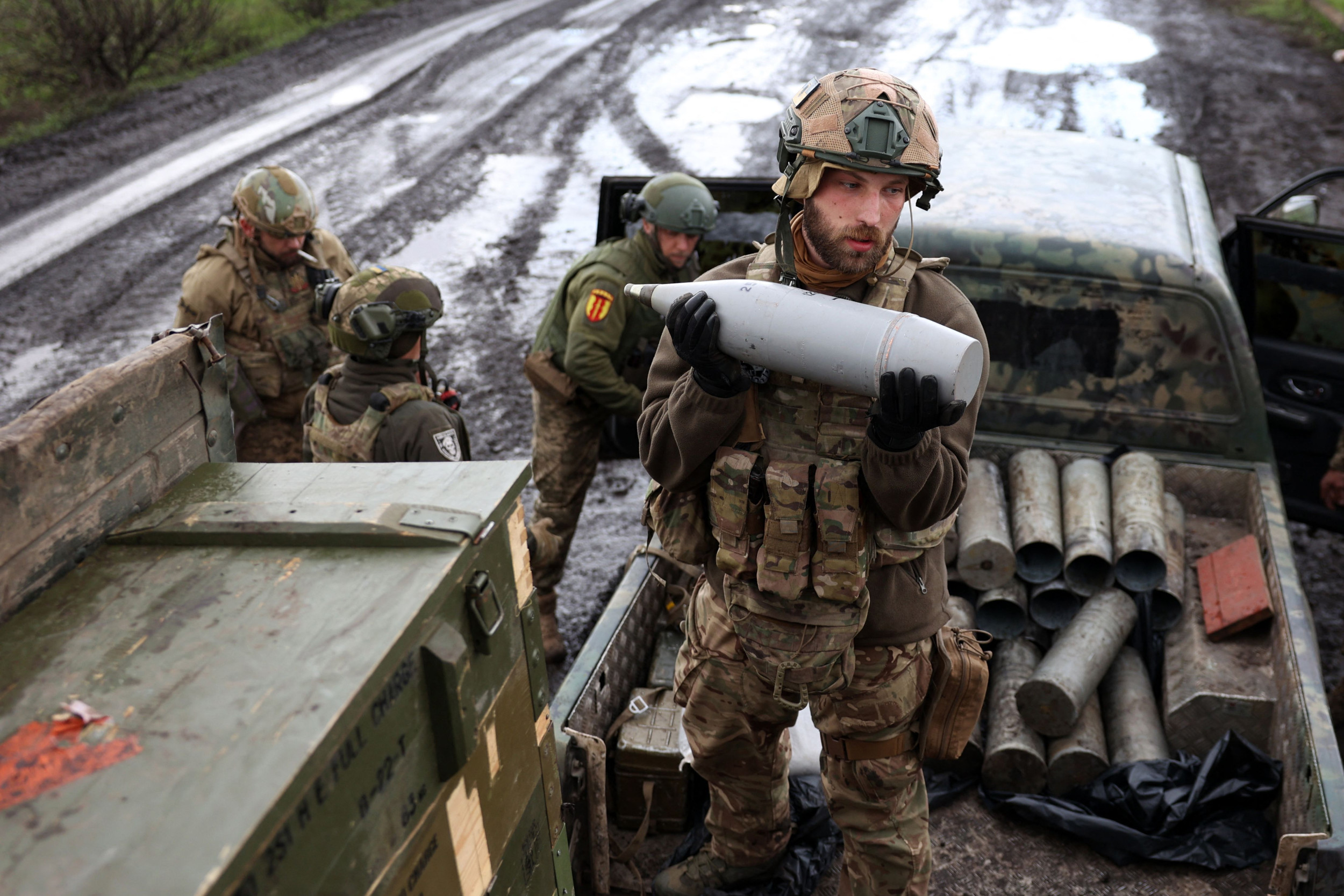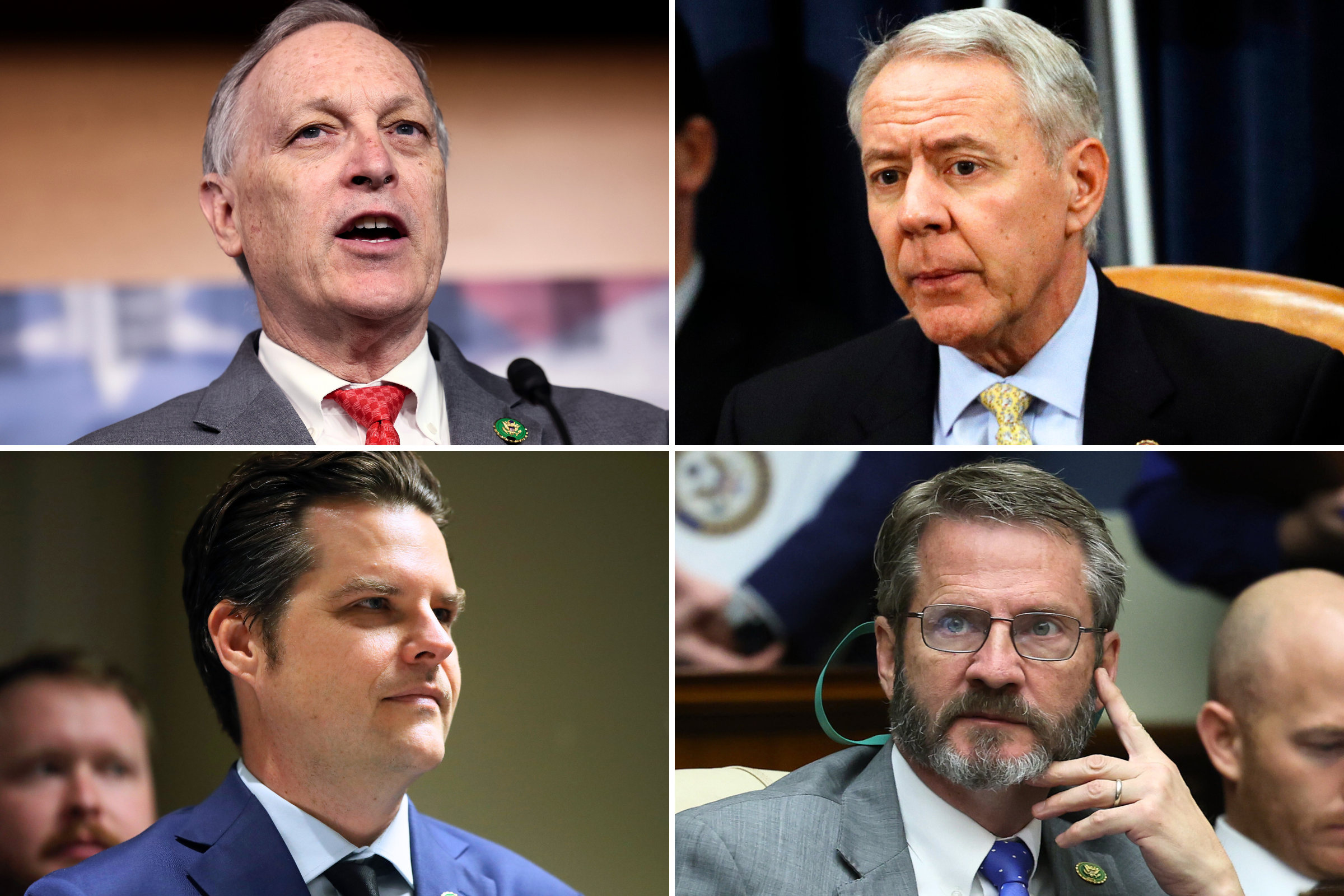One Russian Openly Attacking Putin's Military May Be 'Too Big to Fail'
The Wagner Group has been credited with helping Russia achieve battlefield gains in Ukraine, but the mercenary organization also makes headlines due to its leader's frequent criticisms of Russia's military officials.
Wagner boss Yevgeny Prigozhin was once said to be a close ally of Russian President Vladimir Putin, but the Institute for the Study of War (ISW) think tank in January said the two have drifted apart due to Prigozhin's public rebukes of Russia's defense ministry and military leaders.
The supposed rift between the men began at the beginning of the year when Prigozhin said his Wagner troops were responsible for the capture of the Ukrainian city of Soledar. When Putin credited his defense ministry for Russia's success in Soledar without mentioning Wagner, Prigozhin responded by saying the Kremlin was not giving due credit for his work.
Prigozhin has continued to make it known he's not shy about sharing his opinions, and just this week he publicly disputed an ISW assessment that Wagner's relations with Russian military command had improved. In a Telegram message, he called ISW's report "fake" and said he would not "exchange ammunition for [his] guys even for friendship with God."

During the course of the war in Ukraine, Prigozhin has openly lost his cool when speaking of Russia's military. He angrily equated military leaders not providing his troops with munitions in Bakhmut to "high treason" in audio posted on Telegram in February, as well as derided Russian officials in another expletive-filled message at around the same time.
What may surprise outside observers is how Prigozhin gets away with such public and vocal attacks on Russia, especially when one considers how Kremlin critics often have a tendency of dying mysteriously or being incarcerated.
"I think Prigozhin probably falls into the category of being a little bit too big to fail," Michael Kimmage, who held the Russia/Ukraine portfolio while on the U.S. State Department's policy planning staff, told Newsweek.
"Prigozhin has been around for a while. He's served different functions for Putin, and he's become a high-profile figure," Kimmage said. "So there are costs to removing him—not that Putin wouldn't do it if he felt that was absolutely necessary—but it makes the whole operation [in Ukraine] look more rickety than it already does."
He added, "I doubt that it's sort of personal loyalty between the two men that's been helpful for Prigozhin, but he's got enough stature. He's definitely testing it, that's for sure."
Even if Prigozhin's troops falter in Ukraine, Kimmage said the Wagner Group remains valuable to Putin because of its extensive operations in Africa, where the organization is involved in mining projects and provides military training.
Jason Jay Smart, who has advised multiple political campaigns in Europe and works as a special correspondent for the Kyiv Post, told Newsweek that the Wagner leader has likely been given the okay to denounce Russian officials.
"Prigozhin is allowed to criticize the Russian Government as part of a larger strategy of separating Putin from the disastrous invasion in Ukraine," Smart said. "Prigozhin's recent overtures to Chechen leader [Ramzan] Kadyrov show that they are both subservient players in the games of the Kremlin."
Smart continued, "Prigozhin is the catharsis for those who need a catharsis in Russia; however, he himself is an opportunist. The war in Ukraine, for him, is an opportunity."
David Silbey, an associate professor of history at Cornell and director of teaching and learning at Cornell in Washington, also feels the Russian president sees a benefit in Prigozhin calling out military leaders.
"Putin keeps his officer corps on their toes without having to weigh in too directly himself," Silbey told Newsweek.
Newsweek reached out to the Russian Ministry of Foreign Affairs via email for comment.








